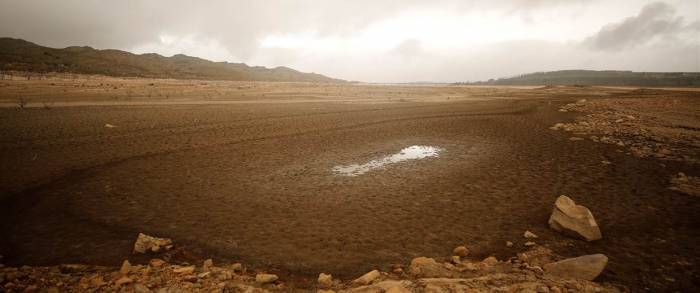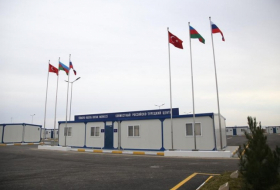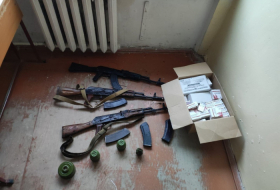She takes one-minute showers standing in a bucket so she can reuse the soapy water, flushes the toilet only when absolutely necessary and uses plastic dishes to avoid having to wash them.
Authorities in Cape Town, struggling with its worst water crisis ever, have ordered residents to use no more than 50 liters, or 13.2 gallons, of water a day. The restrictions are an effort to avoid so-called Day Zero, when officials will be forced to shut off taps and residents will need to line up at water distribution points for a reduced daily allocation of 6.6 gallons.
And the 4 million people living in the city are feeling the strain of watching every drop they use.
“The water-saving measures were fine in the beginning, but month after month the novelty of saving water has worn off and it’s become revolting,” Koton said. “It’s starting to feel unhygienic. When you go to the toilet, sometimes you want to wash with soap and water and not hand sanitizer."
Koton said that she sometimes shares a towel with her husband to cut down on the wash, and regularly reminds her two teenage children to put only their dirtiest clothing in the hamper.
“I have learned so much from this experience as to how much we took water for granted and how we wasted so much,” added Koton, 49.
Originally predicted for April, Day Zero has been repeatedly pushed back and is now expected to hit on July 15. It will be triggered when the dams that supply Cape Town’s water remain only 13.5 percent full.
The restrictions, along with a decline in agricultural water use and a large donation of rural water into a Cape Town dam, have helped keep Day Zero a possibility rather than a reality. With the rainy winter season starting in the two months, there’s hope that it can be avoided altogether.
However, after three years of low rainfall, authorities are urging the residents of Cape Town to persevere with their water-saving measures.
“We cannot afford to slow down when the estimated Day Zero date moves out, simply because we cannot accurately predict the volume of rainfall still to come or when it will come,” the city's executive deputy mayor, Ian Neilson, said in a weekly update last month.
Before the water crisis this summer, Koton's middle-class neighborhood was filled with flowering gardens and shimmering blue swimming pools. Now lawns are sandy, windows and cars are covered in dirt, and swimming pools stand empty.
Authorities are rushing to invest in new infrastructure with three desalination plants that will convert sea water into drinking water currently under construction. The city is also building facilities to extract ground water, as well as to recycle water.
While hopeful that Day Zero can be avoided, officials feel that existing measures will help, should water levels remain low next summer.
Neilson called the water-saving work done so far "a valuable troubleshooting exercise" that "helped the city to identify vulnerable persons such as the elderly and disabled."
Meanwhile, with the rainy season approaching, some residents are taking matters into their own hands.
Ronnie Chorn, 71, plans to collect rainwater from his roof and gutters by connecting them to a massive water drum. He and his wife will use the water to clean the house and water the garden.
“We realize now how much we all wasted,” he said.
NBC news
More about: CapeTown
















































